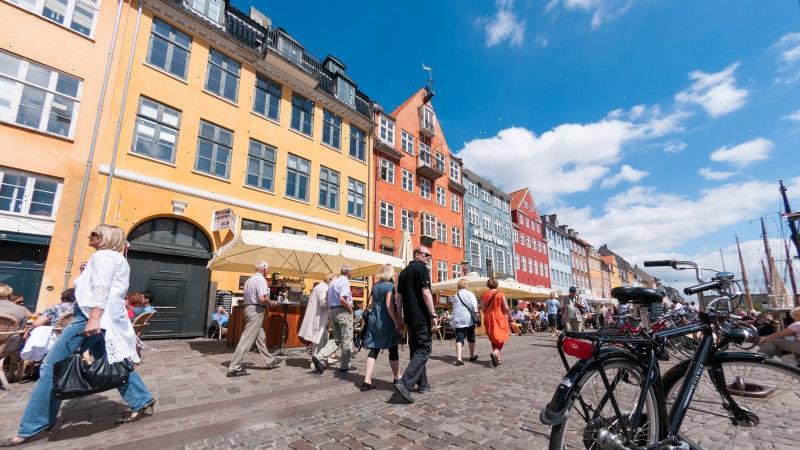Australians travelling to parts of Europe must still verify their vaccination status with local authorities before they can soak up the full range of attractions, but the app used by locals does not recognise Australian COVID-19 Digital Certificates.
As industry warns red tape is hindering international travel, Health Minister Mark Butler will meet with his G20 counterparts on Monday to discuss potential solutions, including ways to “reduce the impediments for travellers as they cross borders”.
Travellers to Europe face vaccination passport red tape. Credit:iStock
A pilot project to test ways for their countries to recognise each other’s vaccine certificates will be on the agenda as leaders work to get trade and travel “back to normal” across the G20, which includes Australia, Brazil, Canada, the United States and the European Union.
The G20 health ministers’ meeting will also discuss efforts to vaccinate developing countries significantly behind schedule.
While an International COVID-19 Vaccination Certificate generated through MyGov is enough to gain entry to most European countries, laws that exclude unvaccinated people from restaurants, bars and other venues are widespread.
Locals flash EU Digital COVID Certificates via QR codes on their smartphones, but the app used does not recognise Australian COVID-19 Digital Certificates.
Australian Federation of Travel Agents chief executive Dean Long said the lack of a universal standard for digital vaccination certificates was “one of the major friction points that we’ve got for both inbound and outbound travel”.
“MasterCard, American Express, and Diners Club all have internationally recognised payment systems and it doesn’t matter where you are, they all work the same,” he said.
“We need governments to get something like that around the world [for vaccination certificates].”
Biometric and identity expert Dr Ted Dunstone said despite the relaxation of COVID-19 restrictions in many countries, travellers still faced cumbersome requirements because the European Union had pursued its own technology for creating digital vaccination certificates.
“If you land in many countries, you need to download the local app in order to be able to verify your vaccination status, and that’s not really sustainable from a longer-term perspective,” Dunstone said.
“If people are going to be able to use these systems then they need to be able to know that they can land in the country and have their current app be compatible with whatever is used locally.”
The process typically involves uploading the traveller’s Australian vaccination certificate within the app and linking it with identification credentials like a passport.
“That’s a relatively onerous process,” he said.
Dunstone, the founder of Biometix who runs an accredited international biometric laboratory, said countries like Australia and Japan used ICAO Visible Digital Seal technology which was not compatible with the EU system.
“They have a different encoding mechanism on the QR code,” he said.
Any solution would need to resolve the differences between different countries’ rules for what information must be included, Dunstone said.
“Some countries, for instance, require batch numbers on their certificates,” he said. “Getting global consensus on that will be really important.”
The Morning Edition newsletter is our guide to the day’s most important and interesting stories, analysis and insights. Sign up here.
Most Viewed in Politics
From our partners
Source: Read Full Article






